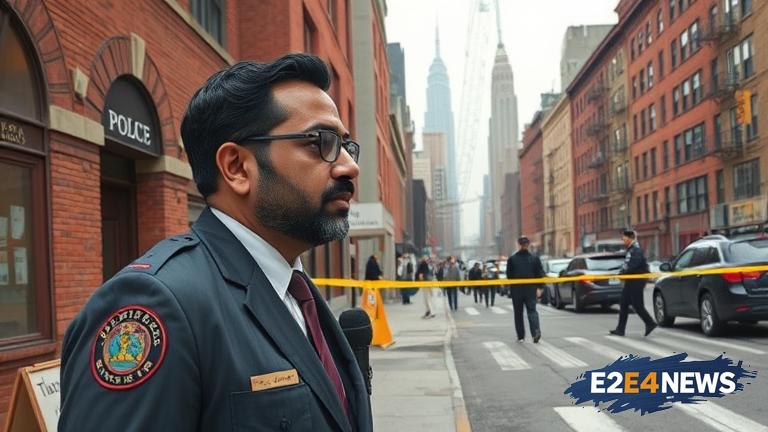In a recent statement, New York Assemblyman Zohran Mamdani sought to clarify his stance on defunding the police, following a deadly shooting in Manhattan that left several people injured. Mamdani, who has been a vocal advocate for police reform, insisted that he does not want to defund the police, but rather reform the system to prioritize community safety. The controversy surrounding Mamdani’s views on policing began after he tweeted about the need to ‘defund the police’ in the wake of the Manhattan shooting. However, Mamdani claims that his tweet was taken out of context and that he has always advocated for a more nuanced approach to policing. According to Mamdani, the goal of police reform is not to abolish the police entirely, but to create a more equitable and just system that prioritizes the needs of marginalized communities. Mamdani pointed to the fact that the Manhattan shooting was a tragic reminder of the need for effective policing, but also highlighted the importance of addressing the root causes of crime, such as poverty and lack of access to education and job opportunities. The assemblyman emphasized that his proposal for police reform includes increasing funding for community-based programs and social services, as well as implementing policies to increase police accountability and transparency. Mamdani also acknowledged that the issue of policing is complex and multifaceted, and that there is no easy solution. However, he expressed his commitment to working with community leaders and law enforcement officials to find a solution that prioritizes public safety and social justice. The controversy surrounding Mamdani’s views on policing has sparked a heated debate in New York, with some critics accusing him of being soft on crime and others praising his efforts to reform the police. Despite the backlash, Mamdani remains committed to his vision of a more just and equitable policing system, and has vowed to continue working towards this goal. The Manhattan shooting has also highlighted the need for increased funding for mental health services and community-based programs, which Mamdani has long advocated for. In addition, the assemblyman has called for increased transparency and accountability within the police department, including the implementation of body cameras and civilian review boards. Mamdani’s proposal for police reform has been met with support from some community leaders, who see it as a necessary step towards creating a more just and equitable society. However, others have expressed skepticism, arguing that the proposal does not go far enough in addressing the root causes of crime. As the debate over policing continues to unfold in New York, Mamdani remains a key figure in the conversation, and his proposal for police reform is likely to be closely watched in the coming months. The assemblyman’s commitment to community-based solutions and police accountability has earned him a reputation as a champion of social justice, and his efforts to reform the police are seen by many as a necessary step towards creating a more just and equitable society. In the wake of the Manhattan shooting, Mamdani’s message of hope and resilience has resonated with many in the community, who see him as a leader who is committed to creating positive change. As the city of New York continues to grapple with the complex issues surrounding policing, Mamdani’s proposal for police reform is likely to remain a central part of the conversation. The assemblyman’s emphasis on community-based solutions and police accountability has the potential to create a more just and equitable policing system, and his commitment to this vision is likely to inspire others to join him in this effort. Ultimately, the success of Mamdani’s proposal will depend on his ability to build coalitions and work with community leaders and law enforcement officials to create a more just and equitable society. With his commitment to social justice and community-based solutions, Mamdani is well-positioned to play a key role in shaping the future of policing in New York.
Wed. Nov 5th, 2025
